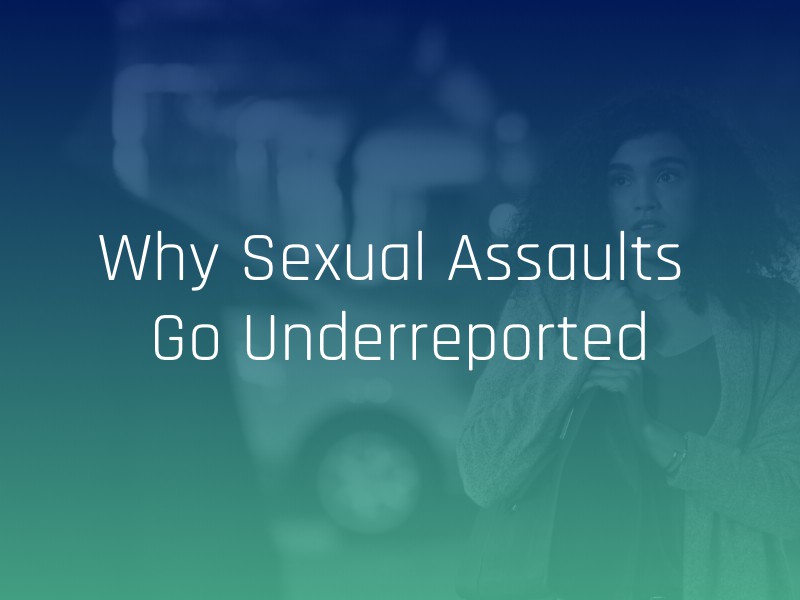While sexual assault is a rampant issue across the United States, statistics from law enforcement fail to capture the scope of the problem because many survivors do not report these crimes to the police. According to the United States Department of Justice, survivors do not report approximately 80% of sexual assaults and rapes.
Many people wonder why survivors do not always report instances of sexual assault to the police, believing that a failure to report reflects poorly on a survivor’s credibility. However, there are many reasons why sexual assault survivors do not report — including fear of retaliation, distrust of police, and abusive living situations.
#1: Many Survivors Fear Retaliation or Ostracization
Sexual assault is a complex crime, and some survivors report fearing retaliation by the attacker, his or her family, or the community that they both live in. According to a report by the Bureau of Justice Statistics, approximately 20% of female victims of sexual assault chose not to report the crime to police out of fear of retaliation.
Survivors should not feel like seeking justice comes at the expense of their personal safety and reputation. The only person who should feel shame or face consequences due to the assault is the perpetrator — but unfortunately, this is not the reality for many survivors.
#2: Some Survivors Do Not Trust the Police or the Criminal Justice System
The Bureau of Justice Statistics report states that approximately 13% of survivors chose not to report their assaults because they believed that the police would not do anything to help. An additional 2% of survivors refrained from reporting because they believed the police could not do anything to help.
According to the Rape, Abuse, and Incest National Network (RAINN), 995 out of every 1,000 perpetrators of sexual assault will walk free following the attack. Out of every 1,000 assaults, survivors report only 230 to the police — and out of these 230, only 4.6 will result in a felony conviction.
These statistics can be disheartening for survivors, and they may believe that the police lack the willpower, care, or resources to help them. Stories of law enforcement officers and court officials asking inappropriate questions, failing to believe survivors, or handing down lesser sentences permeate the public’s perception of sexual assault trials, which can discourage survivors from filing a report in the first place.
#3: Many Survivors Do Not Want Their Attacker to Go to Jail
According to the National Center on Domestic and Sexual Violence, approximately 48% of survivors were friends or acquaintances with their attacker, 16% of survivors were in an intimate relationship with the attacker, and 2% of survivors were related to their attacker. Only 30% of survivors suffered an attack by a stranger.
Because of the relationship that the survivor may have with the person who committed the assault, he or she may refrain from reporting to avoid getting the perpetrator in trouble, or sending him or her to jail. According to the Bureau of Justice Statistics, 7% of survivors cited this as a reason for not reporting.
If the survivor lives with the perpetrator, this factor can greatly complicate the case. The survivor may be afraid of retaliation or violence in his or her own home, or he or she may rely on the perpetrator for financial support and housing. Because of these complicated relationships, the survivor may refrain from reporting to protect his or her health, safety, and stability.
Support and Resources for Survivors
It is the survivor’s choice to report or not to report sexual assault to law enforcement. If a survivor does not feel comfortable or safe about seeking help through the criminal justice system, many other pathways to healing are available to him or her. Civil lawsuits, community justice initiatives, support groups, and multiple online and in-person resources may help.
If you recently experienced sexual assault and you are unsure where to seek help, visit a hospital or medical center to receive a sexual assault forensic exam as soon as possible. After receiving this exam and preserving potential evidence, contact a sexual assault attorney with experience advocating for survivors. Your Rideshare assault lawyer can explain each pathway available to you, and help you make an informed decision on how to proceed.

